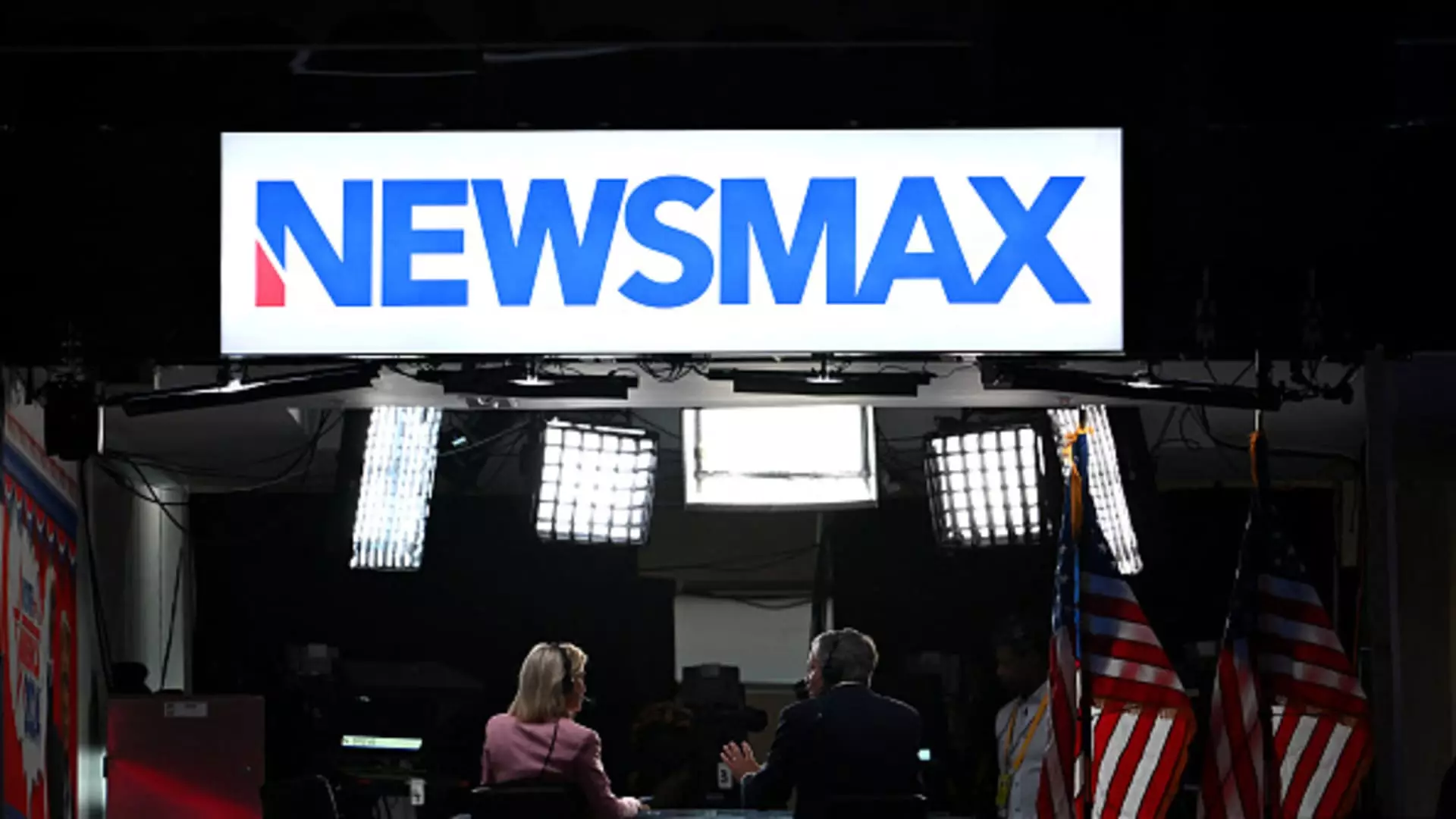The recent $40 million settlement between Newsmax Media and Smartmatic serves as a stark reminder of the dangers posed by misinformation in the media landscape. Allegations that Smartmatic, a voting machine company, engaged in rigging the 2020 U.S. presidential election represent not just a legal dispute, but a significant social narrative that emphasizes the consequences of disseminating exaggerated or false claims. This case reiterates the painful truth—unchecked rhetoric can inflict real harm, punishing innocent organizations while bolstering the narratives of pop-culture politicians.
The Ripple Effect of Defamation
When Newsmax initially reported that Smartmatic helped orchestrate an election fraud scheme to favor Joe Biden over Donald Trump, it likely saw immediate financial upsides from its viewer spike, creating a significant boost in ratings. This 10-fold increase in audience size is impressive, yet it begs a critical examination of ethical standards in journalism. In pursuit of ratings, a cable news outlet may prioritize sensationalism over responsible reporting. In this instance, the pursuit of viewership numbers led to substantive consequences on the societal level, eroding public trust not only in the media but also in the democratic process itself. When a platform amplifies misinformation, it diminishes the integrity of electoral systems and instills fear among populations, essentially sowing seeds of doubt where confidence should reign.
First Amendment vs. Accountability
The First Amendment has long been a cornerstone of American democracy, enshrining the right to free speech and freedom of the press. However, the application of this principle becomes fraught when it collides with the responsibility to report truthfully. Newsmax invoked its First Amendment rights when it frequently streamed claims made by Trump and his supporters. Yet, how far does this right extend in the face of potential harm? The right to free speech cannot serve as a cloak for the irresponsible dissemination of false information. Just because one can say something doesn’t mean one should, and the repercussions of failing to take accountability can be devastating.
Lessons from a Turbulent Era
As misinformation continues to proliferate in diverse media channels, the $40 million lost to Newsmax might seem like a significant penalty—but is it enough? With Smartmatic reportedly seeking damages as high as $600 million, it raises the question of whether current legal frameworks suffice to deter future infractions. Prior defamation cases, such as the $787.5 million settlement involving Fox News and Dominion Voting Systems, underscore a growing trend where media entities confront the consequences of their narratives. With these landmark settlements becoming more commonplace, one wonders if fear of financial repercussions can truly deter the spread of misinformation, or if an entirely new approach to media accountability is necessary.
In a world grappling with the fallout of falsehoods, the Smartmatic vs. Newsmax case acts as a cautionary tale. Perhaps the power to wield words should be met with an equal measure of responsibility—so that the price of telling untruths isn’t merely a metric of corporate expense, but a critical examination of ethics in journalism.


Leave a Reply